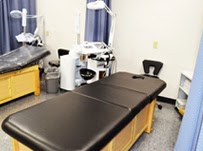Looking
at a new direction of a better career? Check out the Maricopa Skill Center
Welding program!
Welding is the process of joining together (metal pieces or parts) by heating the surfaces to the point of melting using a blowtorch, electric arc, or other means, and uniting them by pressing, hammering, etc. Students in the Welding program can learn various types of processes to prepare them for work in this industry.
Program details:
 Welding is a clock hour
program; times for completion vary from 4 to 17.5 months depending on the
number and type of processes certificates a student chooses. Day and night
classes are available. Students are in class at least five hours a day,
Monday-Friday.
Welding is a clock hour
program; times for completion vary from 4 to 17.5 months depending on the
number and type of processes certificates a student chooses. Day and night
classes are available. Students are in class at least five hours a day,
Monday-Friday.
What the students learn:
MSC allows students a
unique hands-on approach to learn the skills they will need to use in the
welding industry. The program goes hand-in-hand by standards and practices
outlined by the American Welding Society. Students have the opportunity to
learn four welding processes.
TIG Welder
TIG welding process is
where students learn to weld products made of alloys such as aluminum and
stainless steel.
ARC Welder
ARC welding process is
used to fit and tack metal on construction equipment, pipe systems,
automobiles, ships, buildings and bridges.
FLUX-CORE Welder
 Flux-Core welding is
a process to fit and tack assemblies including construction equipment, pipe
systems, ships, buildings, and bridges, using heavier materials.
Flux-Core welding is
a process to fit and tack assemblies including construction equipment, pipe
systems, ships, buildings, and bridges, using heavier materials.
MIG Welder
MIG welding will
teach students how to weld any application using thinner and lighter materials
in its construction.
Certificates:
Certificates can be earned in any combination of four processes in
welding. Students can earn one certificate or can do a combination of two,
three or four. There is also an opportunity if a student chooses to do a three
combination of welding processes where they can elect to do an introduction
into pipe welding. MSC only offers the intro to pipe welding when the student
takes a three-process combination.
After graduation:
Students can look
forward to jobs in large or small shops, manufacturing facilities, marine and
watercraft industries and construction sites.
Public tours are available 9:30 a.m.
Tuesdays and Thursdays.










